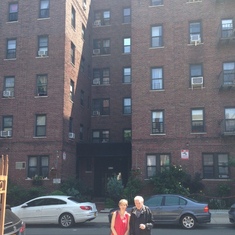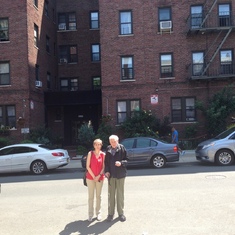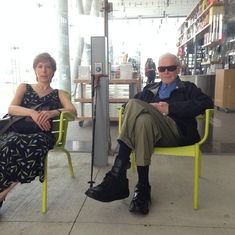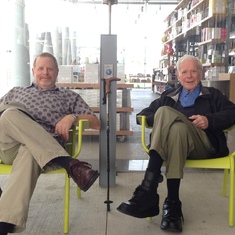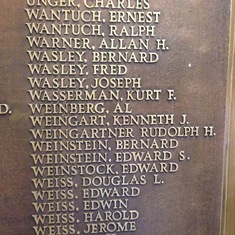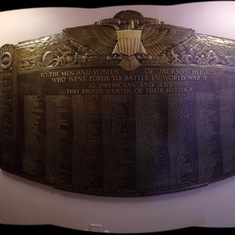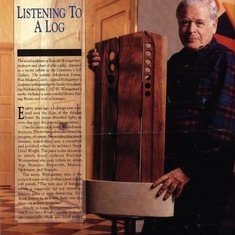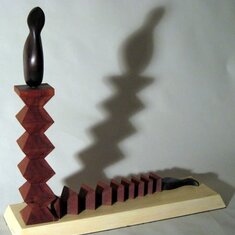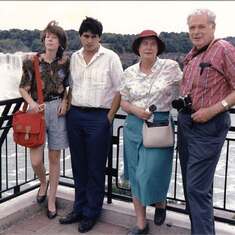A Remembrance of Rudy Weingartner
Robert M. Coen December 4, 2020
During Rudy’s tenure as Dean of the College of Arts and Sciences (CAS)1 at Northwestern from 1974-87, I was fortunate to work closely with him as an Associate Dean for undergraduate curriculum (1976-79) and as Chair of the Economics Department (1985-88). Those years were among the happiest and most fulfilling years of my academic career.
Rudy came into the deanship with a desire to breathe new life into the college’s general education requirements. For decades such requirements have been the hallmark of a liberal arts education, intended to give students broad exposure to the arts and sciences. The 1960’s and 1970’s were marked by an easing, and in some cases elimination, of such requirements in response to student pressures for greater freedom of choice, to growing parental and student desires for practical, job-oriented education, and to increasing specialization in the research and teaching interests of faculty. Through Rudy’s strong leadership and vision, Northwestern bucked the trend, creating a curricular structure that reaffirmed traditional goals of a liberal arts education. He had only a few faculty allies in this cause and met much resistance, but through commitment and tenacity, he prevailed.
Rudy’s first step in revitalizing general education was to launch a program of freshman seminars --- small classes with an emphasis on discussion and writing which would immediately bring new students into close contact with faculty and academic discourse. The seminars, offered by nearly all academic departments, are not meant to be substitutes for the large survey courses that dominate a typical freshman’s classroom experience; rather, they investigate special topics in an intimate setting to engage students actively in intellectual inquiry and argumentation. All freshman are required to take two seminars.
I know from my interactions with students how transformative these seminars have been in the freshman experience. Not long after they were introduced, I recall having a group of freshmen in my office just after winter break. I asked whether they had met with high- school friends while at home during the break and, if so, whether they had compared notes on their first months in college. Indeed they had and discovered that their friends, several at Ivy League schools, were generally in large classes, had little or no interaction with faculty, and lacked opportunities for discussion, research, and writing, all of which, they were excited to say, they enjoyed in their freshman seminars. I and many other faculty establish enduring friendships with Northwestern students we first meet in freshman seminars. Many colleges eventually followed our example and introduced some type of freshman seminar program, but few have made two seminar experiences available to all freshmen and offer college-wide choices. The freshman seminar program stands as one of Rudy’s most successful and lasting enhancements of liberal arts education at Northwestern.
1 In 1998, CAS was renamed the Judd A. and Marjorie Weinberg College of Arts and Sciences.
Another concern was assuring reasonable breadth in students’ exposure to the various areas of arts and sciences. Like most schools of arts and sciences, Northwestern had so-called “distribution requirements,” mandating that students take at least x courses from y departments. The scheme provided little structure to guide students and tended to produce haphazard results. Rudy wanted a plan founded on well thought-out principles, one that could inform students’ choices but not limit them severely, as would be the case in a “core curriculum” approach. His solution was to set out six areas of required course work , each defined by shared subject matter, ways of acquiring and evaluating information, and modes of analysis. Four of the areas encompass familiar groupings --- literature and fine arts, historical studies, natural sciences, and social and behavioral studies. The other two identify types of intellectual inquiry not often singled out for required study --- ethics and values, and formal studies. Within each area, courses include selections from many departments. Formal studies, for example, incorporates courses not only in mathematics and statistics, but also some in logic, linguistics, computer coding, music, and other fields. To qualify for inclusion, courses must offer a broad introduction to the scope and nature of intellectual inquiry in the designated area. Rudy established a new faculty committee to review and approve courses for each area. Recognizing that course offerings were inadequate in some of the six areas, he obtained a multi-year grant from the Lily Foundation to fund development of suitable courses.
Before introducing students to the new scheme, it first had to be sold to the faculty. Opposition was inevitable from professors who foresaw dwindling enrollments in courses that had previously satisfied distribution requirements but no longer would. Rudy overcame the opposition mainly through tactful persuasion, even organizing a weekend retreat of faculty leaders to discuss and promote the proposed structure. Still, support was far from unanimous, and many issues had to be confronted and worked out during implementation, sometimes with considerable rancor. Convincing students of the new scheme’s merits was aided by the Dean’s Student Advisory Board, a new group established by Rudy to assist and advise the Dean on various matters of curriculum and instruction.
Two proficiency requirements rounded out the new program of general education, one in composition, the other in foreign language. These were not entirely new areas of required study. What was new was establishing them as proficiency areas rather than course mandates. Students were asked not to take specific courses but to demonstrate proficiency in writing and in a foreign language before graduation, with several routes available for doing so. This arrangement not only appeals to students desiring flexibility in meeting general education requirements, it also economizes on course and faculty costs. The cost savings were particularly important in the 1970’s, when sharp increases in energy prices and general inflation led to budget deficits and belt-tightening in most universities, Northwestern among them.
Many liberal arts colleges eliminated foreign language requirements in the 1960’s, a trend that continued into the 1970’s, but Rudy had the foresight to preserve and strengthen the College’s commitment to foreign language study. The benefits were, I think, self-evident to Rudy, himself a multi-lingual, multi-cultural immigrant. He could not imagine a liberal arts education that did not acquaint students with the unique insights of attempting to communicate in a second or third language. Today, as undergraduates increasingly want to
study and work abroad, and as colleges enroll large numbers of foreign undergraduates, students are inclined to study foreign languages even without the goad of a proficiency requirement. Rudy’s steadfast defense of language study was not particularly popular at the time, but it was prescient and has greatly benefited the personal and professional lives of generations of CAS undergraduates.
Rudy came up with an economical and effective strategy to further the writing requirement by intertwining it with freshman seminars. Seminar instructors are asked to assess the writing ability of their students at the end of each quarter. Students deemed to be in need of special instruction in composition are then required to take appropriate course work. Those whose writing is rated acceptable can still be required to obtain help in composition, if an instructor in any subsequent course finds their writing to be inadequate. The point is to establish and maintain writing proficiency throughout the student’s undergraduate years. To oversee the writing proficiency requirement and offer instruction in composition, Rudy established the Program on Writing, staffed by well-trained, experienced writers, and The Writing Place, a student drop-in center providing peer assistance with writing assignments.
This scheme of general education requirements --- freshman seminars, structured distribution requirements, writing and foreign language proficiency requirements --- put in place over 40 years ago, still greets Northwestern undergraduates today. We can credit its endurance to Rudy’s care in rationalizing each component and in devising workable arrangements to implement them. The program has become a hallmark of the College’s undergraduate curriculum and a distinctive selling point to attract outstanding applicants.
What accounted for Rudy’s notable success as an architect of general education requirements and builder of a practical, long-standing structure? Most important, I think, was his desire to share the enormous personal pleasure he drew from pursuing ideas and creative work. He wanted others to see how intellectual quests can lead to a life of meaning and reward. But beyond being an idealist, he was a highly-capable manager, knowing how to cope with budget constraints, how to motivate colleagues, and how to persuade students of the wisdom of the requirements.
Rudy left another significant mark on the College’s undergraduate curriculum --- two highly-successful, multi-disciplinary majors, the Integrated Science Program and Mathematical Methods in the Social Sciences. Very bright students sometimes know they want to concentrate in the natural sciences or in the social sciences, but they are hesitant to commit to a particular department within those broad areas. To appeal to them, Rudy oversaw the introduction of these two novel programs which allow students to make an early commitment to their broad area of interest but delay the choice of a specialty to a later time. Students begin each program with a specially-designed introductory curriculum that presents methods of analysis common to the various sub-specialties of the broad field; with that background, they can make better-informed choices of branches they wish to follow. Both are honors programs enrolling some of the most talented and highly motivated students in the College, and they have played an important role in attracting more top high school prospects to the College. The exceptional quality of the students makes the programs very popular with faculty, who enthusiastically design and teach the customized courses. Many college administrators seek to
promote multi-disciplinary or inter-disciplinary studies, but few have come up with schemes for doing so that are as successful as the programs Rudy fostered.
Rudy instituted many improvements in governance of the College. I noted them in a tribute I presented at the last College faculty meeting over which he presided on May 20, 1987. That tribute is appended to this remembrance. What I can now add to those remarks is that his reworkings of major areas, such as tenure review and curricular change, are still largely in place decades later and continue to contribute to the rising quality of Northwestern.
During Rudy’s final years at Northwestern, I was chair of the economics department. Economics was, by national reputation, one of the two or three top departments in the College, but its position was threatened by faculty departures. Faculty ranks had shrunk from about 35 to about 25, and some of the best senior faculty were lured away to departments ranked above us. Rudy came to our rescue, supporting an aggressive hiring plan and enhancement of resources for faculty development and research. Still, there was considerable doubt whether these measures would succeed in the highly competitive market for top faculty. The bond of trust and cordiality between Rudy and me, established during the years I served in the Dean’s Office, helped immensely to bolster the effort. We agreed to identify exceptional younger faculty who were not yet tenured, and probably movable, and to go after several of them simultaneously. Rudy approved initial offers that were generous in salary and research support, but candidates often had questions about details and additional concerns. When they did, I could get on the phone with Rudy almost immediately, work out accommodations, and reply quickly with answers and embellishments --- usually to the candidate’s amazement at our promptness and responsiveness. With Rudy’s enthusiastic support, the rebuilding effort was remarkably successful, bringing in a core of brilliant, genial young faculty who revived the department’s spirit and restored its reputation. Several of the faculty we hired during those years were ultimately hired away from us by top departments, such as Harvard, Princeton, and Yale, which only confirms Rudy’s adeptness in recognizing talented targets of opportunity and attracting them to Northwestern.
Life with Rudy was fun and stimulating. The CAS Dean’s Office in the late 1970’s was a modest operation, involving a small number of associate and assistant deans. Most of us brought bag lunches and dined together from time to time in Rudy’s office. Conversations often strayed from office matters to art, music, literature, politics, and personal histories. It was from these gatherings that I came to fully appreciate Rudy’s broad knowledge and critical ability, his enthusiasm for batting around ideas for pure fun as well as enlightenment, and his worldly perspectives on human relations. His balance of seriousness and light-heartedness really appealed to me. From his younger years in Germany, it seems that he acquired a certain formality in conduct and speech that could seem distancing at first meeting, but with familiarity, his affability soon became apparent. His humorous takes on the pretensions and eccentricities of academic life could be disarming and delightful. I recall, for example, one lunch when he told of a morning phone call he made to request an evaluation of a possible hire. The person answering at the other end greeted him with, “Good morning. Center for the Study of Human Problems.” To which Rudy said he could not help but respond, “All of them???”
At the close of each academic year, after the new graduates were congratulated and dispatched at the College’s commencement ceremony, Rudy and Fannia hosted the Dean’s Office team for an informal gathering at their home on Orrington Avenue. I remember with great fondness those June afternoons sitting on the large front porch, relaxing with good friends and recollecting the highs and lows of the past year. The conviviality of these gatherings reinforced the bonds among us, something that was of great concern to Rudy. I learned from him the importance of collegiality and cordiality in building a successful academic enterprise. He wanted the College to be more than a loose collection of departments and independent scholars; he wanted there to be a sense

